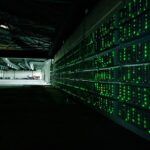Facing fears with facts and reason: Managing energy risks after Fukushima
By Thomas Rosenbaum | March 17, 2011
As the reactor crisis continues to unfold in Japan, we confront once again our fears of the terrible consequences that can be wrought by nuclear radiation. It is not only the immediate dangers of exposure, but also the cancers that inevitably will show up years in the future, and the unpredictable impact of radioactive particles dispersed by the winds. Already, there are calls in the United States to slow a budding nuclear renaissance, and it is certain and wise that safety protocols will have to be re-examined for the many nuclear power plants of similar design to those at the Fukushima Daiichi complex.
At the same time, this crisis brings into sharp relief our inability to weigh risks. Although there is indisputable scientific evidence for the profound effects of greenhouse gases on the Earth’s climate — many of them catastrophic over the long term — we continue to burn fossil fuels without pause. As long as people desire a better life, the demand for energy will grow, and it is hard to believe that we will be able both to satisfy these rightful demands and control carbon emissions without nuclear power as a growing part of a growing mix. Yet, the immediacy of the all too frightening reminders of the dangers of nuclear energy overwhelm the insidious but seemingly inexorable march to the tipping point for irreversible global climate change.
There is a big picture and a big challenge that extends well beyond Fukushima. As a society, we must summon the will to paint on a larger canvas. It seems to me to be less a challenge of financial investment than a matter of conceptualization and purpose. The imperative of safer designs and sitings for nuclear plants does not obviate the need to develop an energy future that both recognizes the needs of the world’s growing population and protects the future viability of the planet. There are risks no matter which path we choose, and I would argue that we are at a point where a clear-headed assessment of overall risk embedded within a purposeful sense of where we need to go is of the utmost urgency.
Together, we make the world safer.
The Bulletin elevates expert voices above the noise. But as an independent nonprofit organization, our operations depend on the support of readers like you. Help us continue to deliver quality journalism that holds leaders accountable. Your support of our work at any level is important. In return, we promise our coverage will be understandable, influential, vigilant, solution-oriented, and fair-minded. Together we can make a difference.
Topics: Climate Change, Nuclear Energy, Opinion














